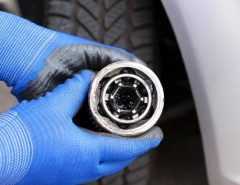After studying which is the best car for you , as well as the pros and cons of the different ways of acquiring a new vehicle, an informed buyer should know which car he wants and how he will pay before setting foot in the dealer. However, that is just the beginning of the story.
The sale of vehicles is a business of very narrow margins, where the sales force is remunerated with paltry salaries . These salaries are compensated with generous commissions, which naturally constitutes a strong incentive for sellers to do everything possible to sell a vehicle to each and every one of the people entering the exhibition hall.
The buyer must be prepared so that the car dealer not only questions their decisions, but also exerts a brutal pressure to release quickly what in many cases will be the second fattest check that he will write in his life , usually accompanied by a substantial debt.
The following tips are intended to help a buyer to successfully exit a visit to the car dealer , as well as to use in their favor various circumstances surrounding the sale of a new car.
1. When to visit the dealership?
Although it is obvious, it must be said that the best time to buy a car is when the dealer is most in need of selling it . Although more than one seller will say that he needs to sell every day of the year, there is a time in the month when, in the vast majority of cases, more favorable conditions for the buyer can be negotiated: the last two days.
It is at the end of the month when dealers do the impossible to comply with sales quotas established by the manufacturer . These fees usually trigger cash bonuses, which in many cases determine whether the dealer will close the month in red numbers or not. This leads even to the contradictory case that the dealer decides to sell a pair of vehicles at a loss to close the month with profit. Why should not one of them be for you?
Although there are no guarantees, no way of knowing, if a dealer is in trouble to meet its monthly quota, there is no doubt that the possibility of closing a good business is getting bigger as the end of the month approaches. There are however periods in which car purchases are generally low and therefore can be negotiated with advantages, such as two weeks after Christmas and the first week of classes.
2. The seller is not your friend
The buyer must reach the dealer knowing how much he wants and can pay for his new car. If not, is exposed to the task is done by the seller or sales representative, whose mission is to sell the most expensive car that the bank approves the buyer, without taking into account their personal, financial, or their interests. The buyer’s mission is to stand firm in his initial decision. This is a game that only the unsuspecting and ill-informed buyer or the one who flouts his convictions will lose.
You have to always remember that, however friendly, willing and charismatic you are, the car salesman is not your friend and because of the nature of the business your interests are going to tend to be on the opposite side of yours.
3. The conversation
A buyer who did his homework should get to the dealer with the base price he wants to pay in hand and should let the sales representative know as early as possible. When this happens, the seller is most likely to leave him momentarily, saying he has to consult with his boss. Usually that conversation does not happen , or if it takes place the seller will not be advocating for the buyer.
The seller will return with a paper in his hand which may even have official appearance. That paper will contain a counteroffer. The buyer should not hesitate to get up and leave, giving thanks and without burning bridges. In the vast majority of cases, the seller will follow him and invite him to continue negotiating and the buyer will have taken the lead. If it does not, the buyer will be better served by visiting another dealer.
4. The financier’s office
Once an agreement is reached on the sales price, the sales representative, who has basically fulfilled his role, disappears from the scene and the buyer falls into the hands of the financier to close the deal. The financier usually receives the seller in a separate office from the sales area in a new and strange environment for the buyer.
The primary task of the financier is to close the deal under the conditions agreed upon with the seller, for which he consults with all the financial institutions with which the concessionaire works through a terminal on his desk. A buyer who did not do his homework well and does not know the status of his credit rating, can get an unpleasant and embarrassing surprise in the financier’s office.
However, the financier has a secondary task, that of selling a quantity of goods and services that the buyer does not necessarily need or that can get cheaper elsewhere . This is an important revenue source for the concessionaire so the financier will be insistent. Complementary insurances, guarantees served by third parties, security systems and accessories are some of an endless list of offers that the financier will read to the buyer and that if accepted, will be added to the agreed base price making the fees considerably.
It is in the financier’s office that the final deal will be closed.
5. After the dealer
A buyer may have many reasons to want to undo a deal and return a car. A buyer regretful of having made an unnecessary purchase is a scenario that dealers are accustomed to dealing with, and for that, they have a very powerful weapon: The law. The concessionaires have no legal obligation to undo a sales agreement and only do so in very extraordinary circumstances.
The buyer however still has certain resources such as ” lemon laws ” that provide compensation and legal remedies for vehicle owners who constantly and repeatedly fail to comply with reasonable quality and performance standards . For example, in some states the manufacturer is obliged to repurchase those vehicles which must be taken to the dealer’s shop repeatedly for the same defect (which are known as lemons) while they are under warranty. Each state has its own lemon law so you have to consult the applicable legislation for each particular case.






Leave a Reply